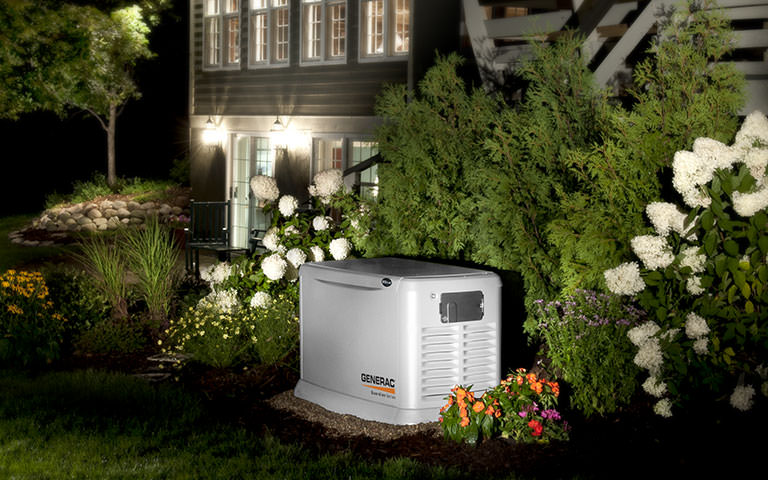
Could you live in your home without power? Electricity—and all that it allows us to do—is something that many homeowners take for granted, and understandably so. Aside from paying the electric bill on time every month, there’s usually not much to think about when it comes to keeping the lights on and the outlets working. In some areas of the country, however, that’s starting to change. And it begs the question: should you have an emergency generator for your home?
To help you figure out what’s best for your home, here is a quick guide to emergency generators.
An emergency generator is a back-up power supply that provides electricity to your home in the event of a utility outage. There are two primary types: standby generators, which have a trigger that’s automatically switched on in the event your main power supply goes out; and portable generators, which also supply emergency power but must be operated manually.
Standby or portable, an emergency generator is an insurance policy of sorts against the effects of a power outage. Think of it like an independent electrical system completely off the grid that powers your home and community, with the degree of power offered ranging from just keeping the lights on to powering your whole home at full force, depending on what type and size of unit you buy.
Standby generators are generally permanently and professionally installed, and are housed outdoors just like many of a home’s other utility hook ups. The generator is hooked up to a home’s main utility panel, and must be wired into the existing electrical system—hence the need for professional installation. Because standby generators can’t be powered by electricity themselves (for obvious reasons), they run on gasoline, propane, or natural gas, depending on your setup. Portable generators, on the other hand, run on gasoline and do not need to be professionally installed.
Similar to air conditioners, emergency generators come in different sizes and different wattages depending on the needs of your home. Prices vary quite a bit between the different sizes, as well as between portable generators and standby generators.
To save on cost, some homeowners buy a small emergency standby generator that will supply power to just one or two primary rooms, or share the cost (and use) of a portable generator with neighbors. Others invest in a large standby generator in order to ensure their home has plenty of power to weather an outage. If you do decide to buy an emergency generator, do plenty of research so that you can be sure to find the right power supply for your home at the right price.
Aside from choosing the type of emergency generator that best suits your situation and budget, you’ll also have to figure out just how much power you’re going to need. A generator’s power supply is designated by watts, with more wattage offering more power.
The amount of watts you need with your generator depends on what you want to keep running. Each electrically-powered item in your home requires a certain wattage to turn on (starting or “surge” wattage) as well as to keep running, with about 5,000 watts needed to power your average home.
If you’d rather break it down to only purchase the amount of watts that you need, go item by item and add up the required wattage, then buy a generator that can accommodate. For example, a refrigerator requires about 800 watts of power, your phone charger about 20 watts, and your air conditioner about 1,000 watts. If you just wanted to ensure these three things will have power in the event of a power outage, you could get away with a 2,500 watt generator, which leaves room for surge wattage.
Use a wattage calculator to easily add up how much power you’re going to need out of your emergency generator based on what you want to keep running. Standby units generally range from about 5,000 to 20,000 watts, while portable units range from about 3,000 to 8,500 watts.
Contact us today for more information.
Source: moving.com
Whether your need is to power your business to keep on your production schedule or your home to keep your family safe and sound, South Shore Generator has the product diversity to meet all of your generator requirements. We are proud to sell and service generators from 2kW to 2000kW single set units and up to as large as 100MW utilizing Generac's innovative Modular Power Systems (MPS).